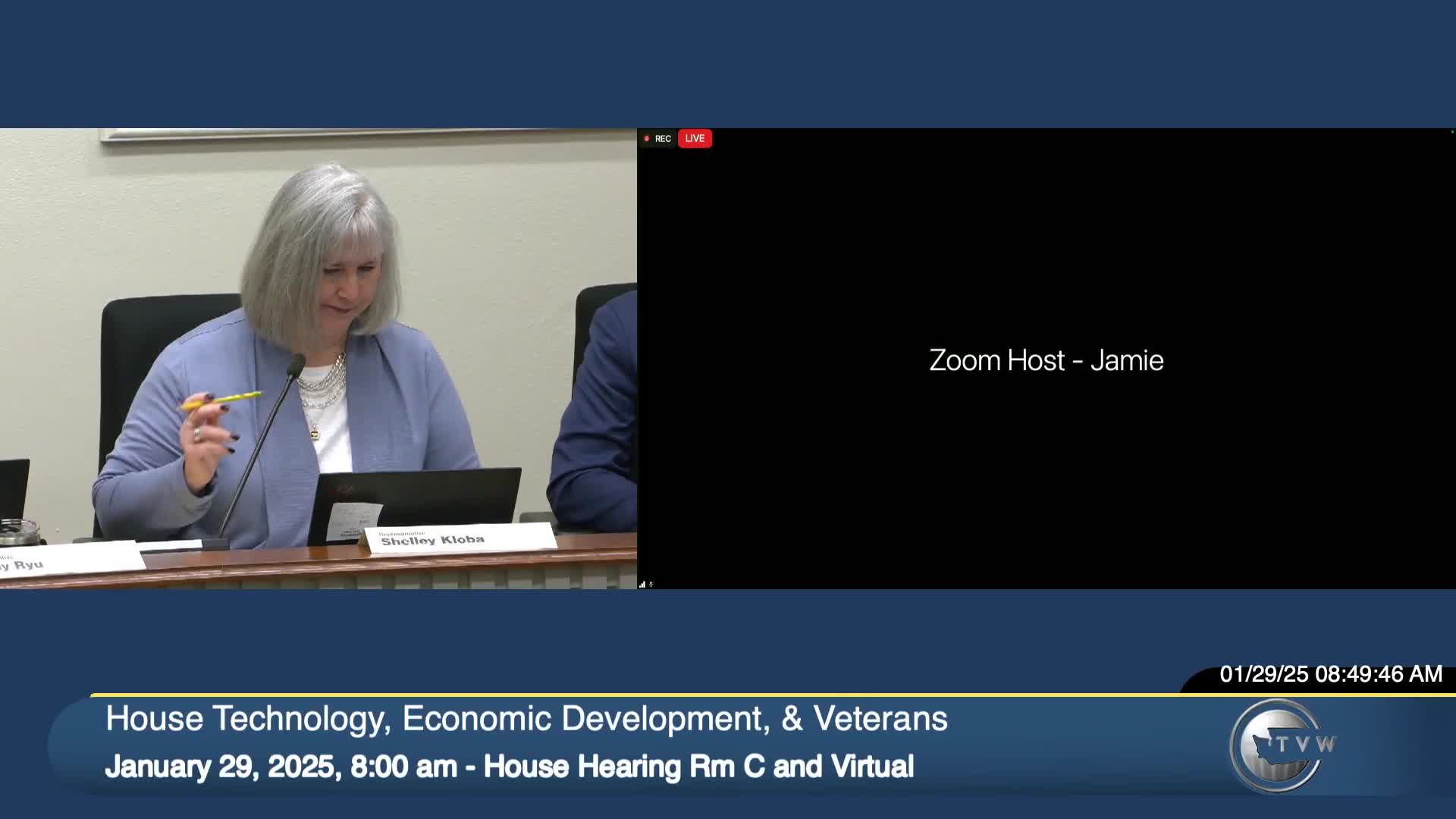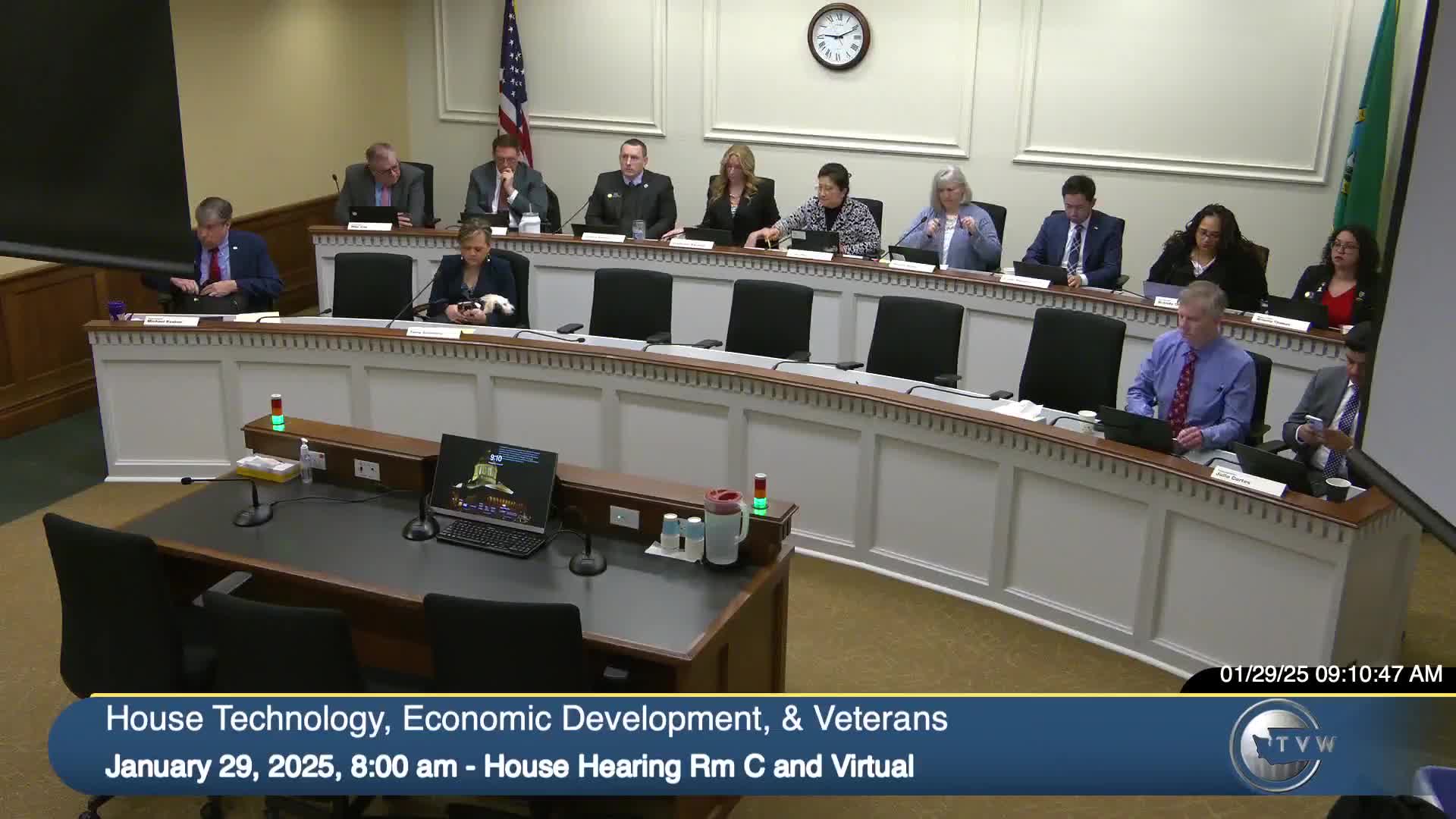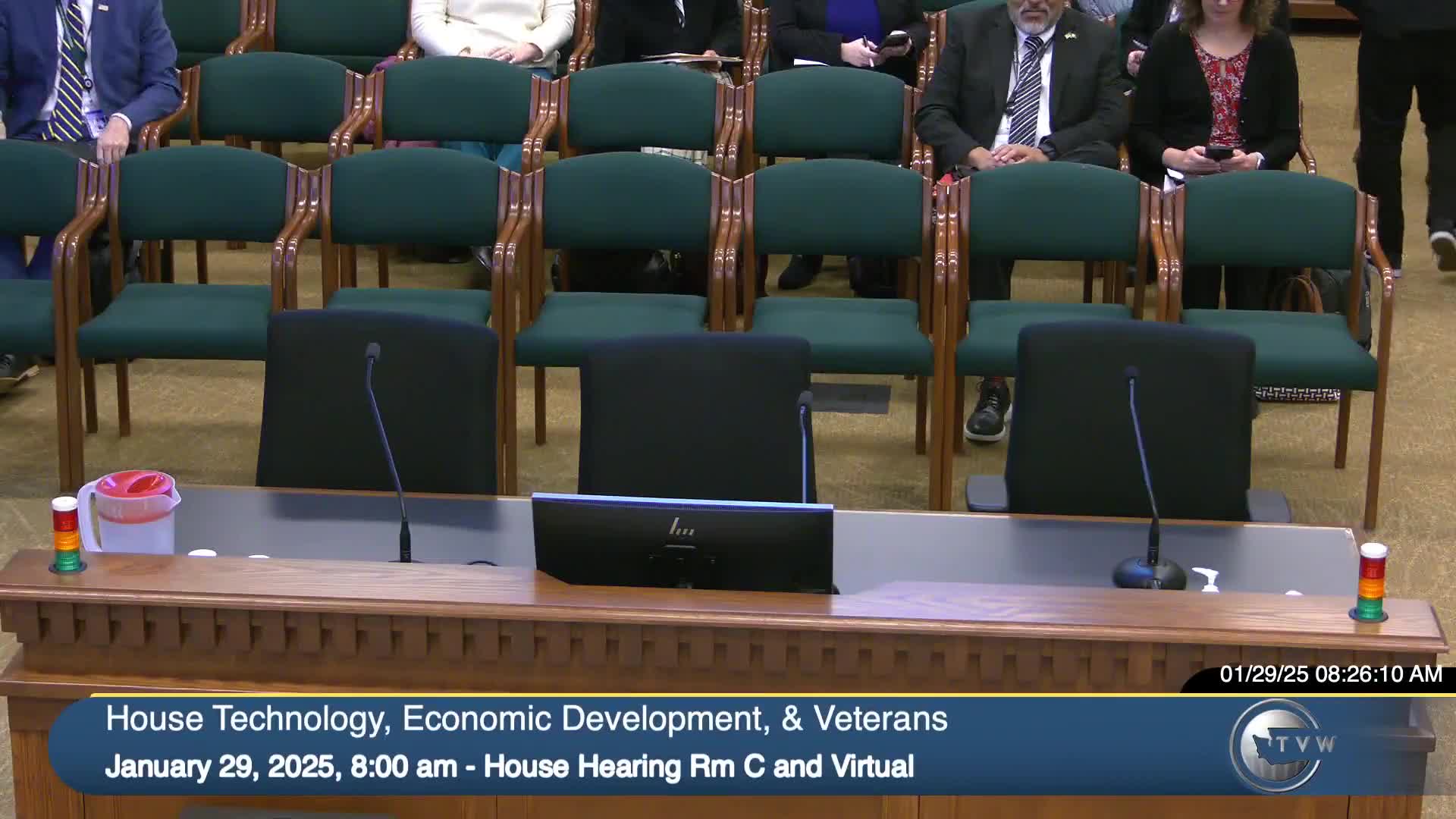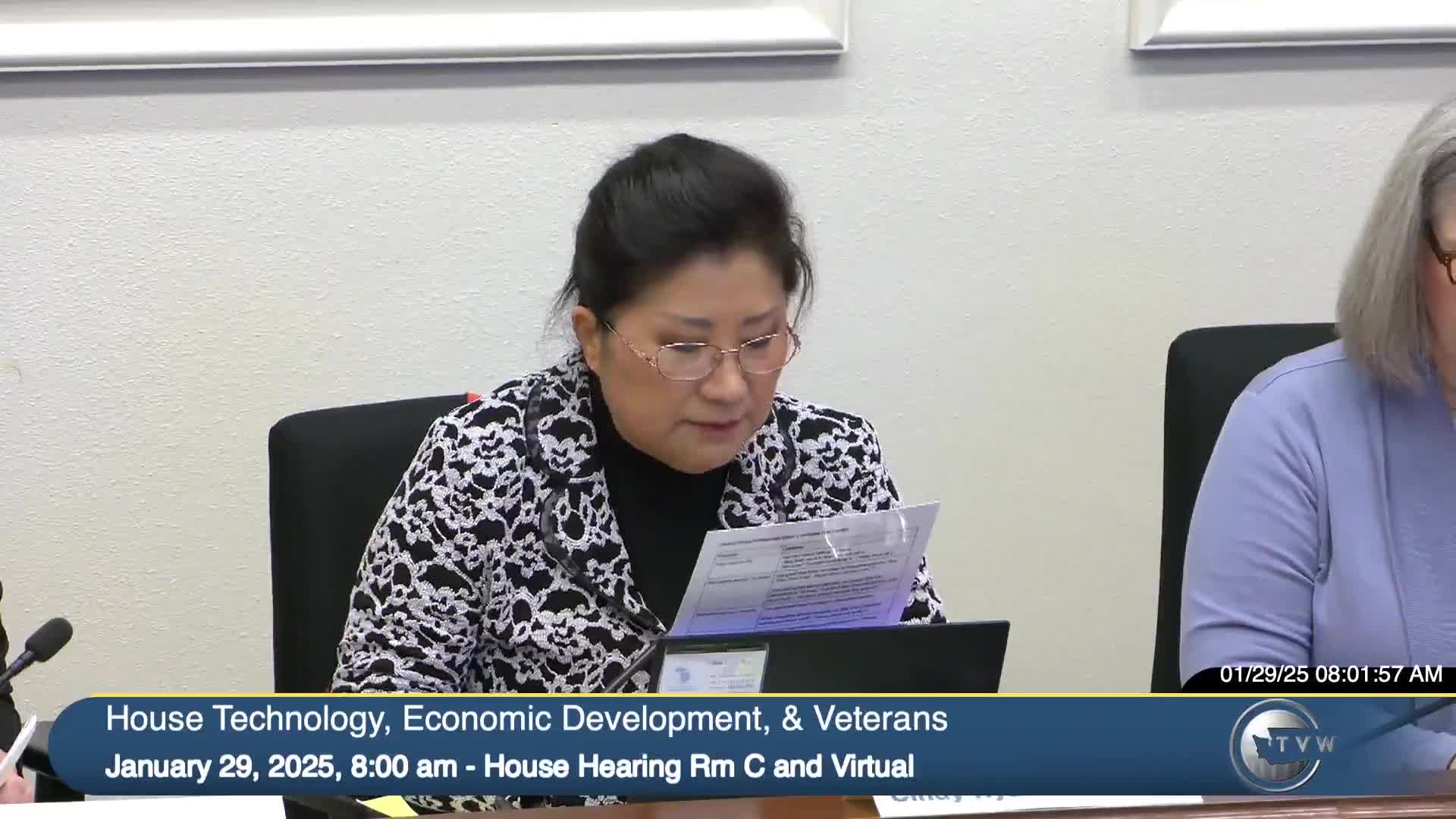Article not found
This article is no longer available. But don't worry—we've gathered other articles that discuss the same topic.

Panel reviews HB 1541 to add Native American and National Guard representation to Veterans Affairs Advisory Committee

Committee amends and approves substitute of HB 1201 to encourage companion-animal accommodations in emergency shelters

Committee hears supporters say HB 1406 will provide flexibility and boost funding equity for associate development organizations

